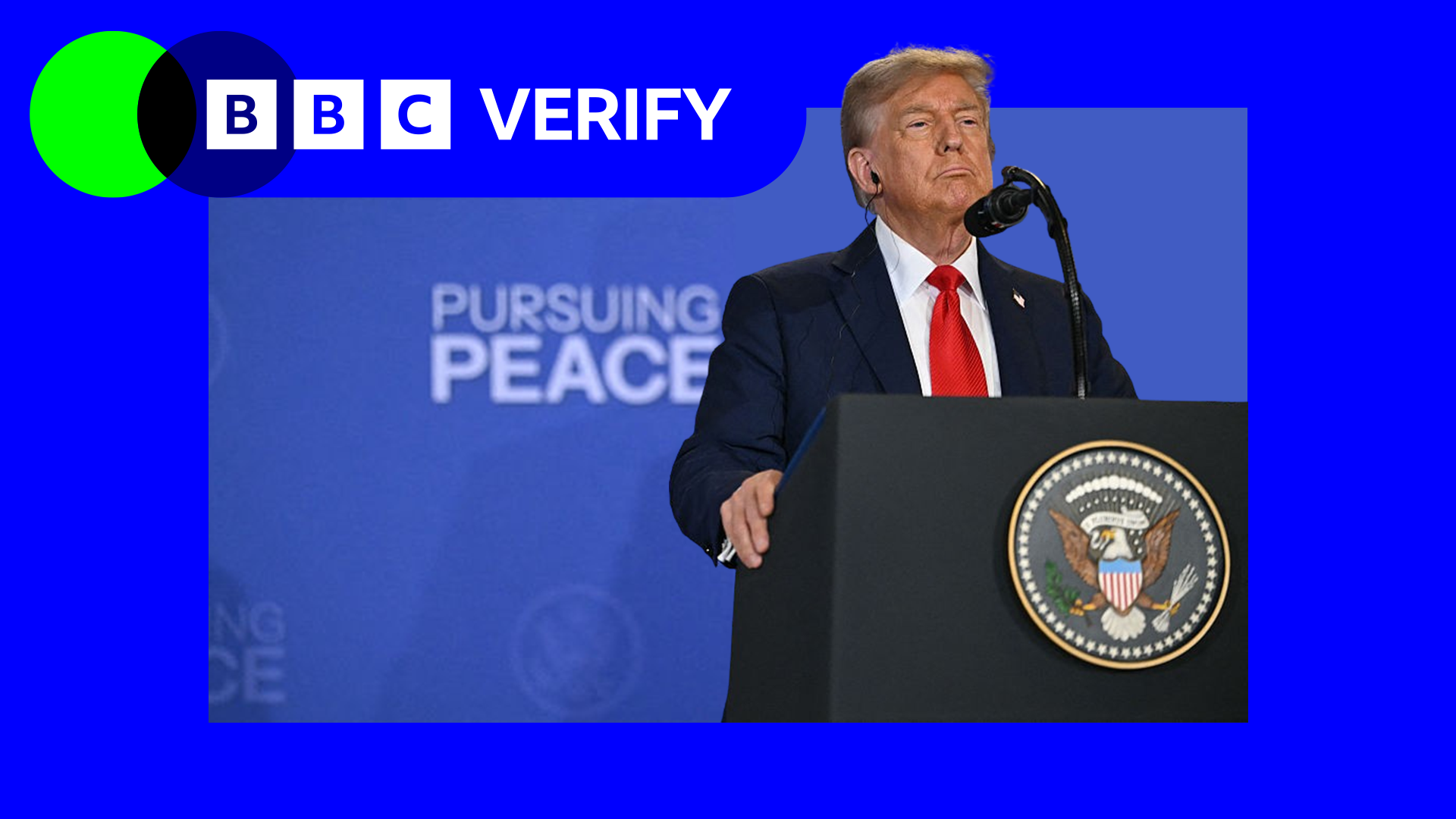How Many Wars Did Trump Actually End?

Trump's Claims of Peace Negotiations and the Conflicts He Cites
President Donald Trump has been emphasizing his role as a peacemaker, particularly in efforts to bring an end to the Russia-Ukraine war. During a press conference at the White House on 18 August, he was asked by European leaders about pushing for a ceasefire. In response, he stated: "I've ended six wars… all of these deals I made without even the mention of the word 'ceasefire'." The next day, he increased the number to "seven wars."
The Trump administration has suggested that a Nobel Peace Prize is long overdue for the "peacemaker-in-chief," listing the conflicts they claim he has resolved. However, some of these so-called wars were short-lived, and it remains uncertain whether the peace agreements will hold.
Trump has frequently used the term "ceasefire" when discussing these conflicts on his Truth Social platform. The News PulseVerify has examined these situations to determine how much credit the president can actually take for ending them.
Israel and Iran
A 12-day conflict between Israel and Iran began when Israel struck targets in Iran on 13 June. Trump confirmed that he had been informed by Israeli Prime Minister Benjamin Netanyahu before the attacks. The U.S. carried out strikes on Iranian nuclear sites, which many viewed as bringing the conflict to a swift conclusion.
On 23 June, Trump posted: "Officially, Iran will start the CEASEFIRE and, upon the 12th Hour, Israel will start the CEASEFIRE and, upon the 24th Hour, an Official END to THE 12 DAY WAR will be saluted by the World."
However, after the hostilities ended, Iran's Supreme Leader Ayatollah Ali Khamenei claimed his country had achieved a "decisive victory" and did not acknowledge a ceasefire. Israel has since hinted it may strike Iran again if new threats emerge.
Michael O'Hanlon, a senior fellow at the Brookings Institution, noted that while there is no agreement on permanent peace or monitoring of Iran's nuclear program, the weakening of Iran by Israel with U.S. support has been strategically significant.
Pakistan and India
Tensions between Pakistan and India have existed for years, but in May, hostilities broke out following an attack in Indian-administered Kashmir. After four days of clashes, Trump claimed that India and Pakistan had agreed to a "FULL AND IMMEDIATE CEASEFIRE," attributing this to U.S. mediation.
Pakistan praised Trump and even recommended him for the Nobel Peace Prize, citing his "decisive diplomatic intervention." However, India downplayed the role of the U.S., stating that talks were held directly between the two countries.
Rwanda and the Democratic Republic of Congo
Long-standing tensions between Rwanda and the Democratic Republic of Congo (DRC) flared up when the M23 rebel group seized mineral-rich territory in eastern DRC earlier in the year. In June, the two countries signed a peace agreement in Washington aimed at ending decades of conflict. Trump claimed this would boost trade between the nations and the U.S.
Despite the agreement, both sides have accused each other of violating the ceasefire. The M23 rebels, linked to Rwanda by the UK and U.S., have threatened to walk away from peace talks. Margaret MacMillan, a professor of history, noted that fighting continues between the two countries, suggesting the ceasefire has never truly held.
Thailand and Cambodia
On 26 July, Trump called the Acting Prime Minister of Thailand, urging an immediate ceasefire between Thailand and Cambodia. A few days later, the two countries agreed to an "immediate and unconditional ceasefire" after less than a week of border fighting.
Malaysia hosted the peace talks, but Trump reportedly threatened to halt separate negotiations on reducing U.S. tariffs unless Thailand and Cambodia stopped fighting. Both countries rely heavily on exports to the U.S. On 7 August, an agreement was reached to reduce tensions along their shared border.
Armenia and Azerbaijan
Leaders of both Armenia and Azerbaijan credited Trump for securing a peace deal announced at the White House on 8 August. Michael O'Hanlon noted that the Oval Office signing ceremony may have pushed the parties toward peace.
In March, both governments said they were ready to end their nearly 40-year conflict over Nagorno-Karabakh. The most recent serious outbreak of fighting occurred in September 2023 when Azerbaijan seized the enclave where many ethnic Armenians lived.
Egypt and Ethiopia
There was no actual war between Egypt and Ethiopia, but long-standing tensions over the Grand Ethiopian Renaissance Dam have persisted. Ethiopia completed the dam this summer, and Egypt argued its water supply from the Nile could be affected.
After 12 years of disagreement, Egypt's foreign minister stated that talks with Ethiopia had stalled. Trump commented: "If I were Egypt, I'd want the water in the Nile." He promised the U.S. would resolve the issue quickly. While Egypt welcomed his words, Ethiopian officials warned that such comments could inflame tensions. No formal agreement has been reached yet.
Serbia and Kosovo
On 27 June, Trump claimed he prevented a potential conflict between Serbia and Kosovo, stating: "Serbia, Kosovo was going to go at it, going to be a big war. I said you go at it, there's no trade with the United States. They said, well, maybe we won't go at it."
However, the two countries have not been in active conflict, and the situation does not constitute a war. Prof. MacMillan pointed out that the dispute is a legacy of the Balkan wars of the 1990s, but no actual fighting has occurred recently. The White House referenced Trump's diplomatic efforts during his first term, including economic normalisation agreements signed in 2020, though the countries were not at war at the time.
Post a Comment for "How Many Wars Did Trump Actually End?"
Post a Comment